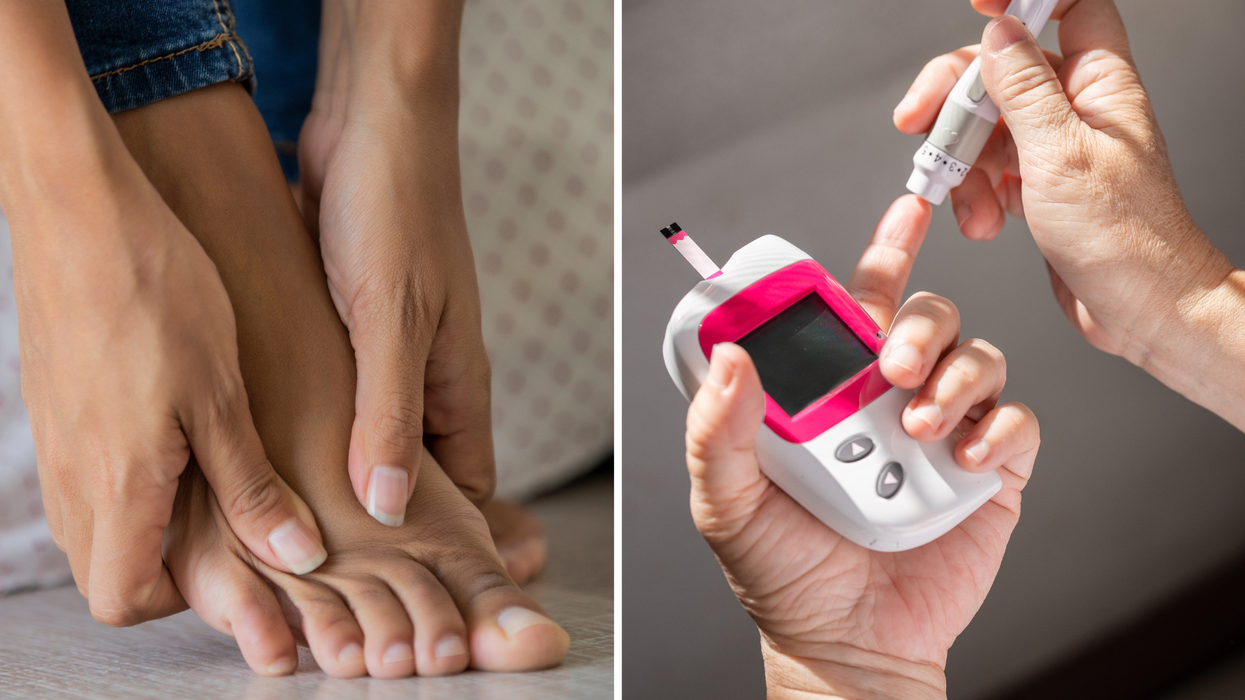Type 2 diabetes symptoms: Two sensations in your feet that signal 'irreversible' damage - 'worse at night'

Burning or shooting pain in the feet can signal high blood sugar damage
|Getty Images

Uncontrolled diabetes can ravage the body in surprising ways - and the symptoms may not show up for years.
Don't Miss
Most Read
Type 2 diabetes can cause nerve damage if left untreated and two sensations in your feet can signal you're in the danger zone.
The signs are a chilling reminder of the devastating effects of high blood sugar levels - a complication that arises when your body does not produce enough insulin.
One of the casualties of consistently high blood sugar levels is nerve damage, otherwise known as diabetic neuropathy.
"Diabetic neuropathy can't be reversed (but the symptoms can be treated). Once the nerves have been damaged they cannot repair themselves," warns Diabetes UK.

Tingling or numbness in the feet can signal signal high blood sugar levels have damaged your feet
|Getty Images
Feel that?
According to the health body, "burning or shooting pains" that may be "worse at night" can signal diabetic nerve damage.
Other signs in your feet include:
Tingling and numbness
Loss of ability to feel pain
Loss of ability to feel changes in temperature
Loss of coordination – when you can’t feel the position of your joints
Can it be prevented?
Keeping blood sugar levels within a healthy range can ward off the threat of diabetic nerve damage or stop it getting worse.
According to the NHS, a healthy diet and keeping active will help you manage your blood sugar level.
"There's nothing you cannot eat if you have type 2 diabetes, but you'll have to limit certain foods," explains the health body.
These include:
Sugar
Fat
Salt
Other foods have been to shown lower blood sugar levels. A recent study suggested a daily supplement of cinnamon has blood-sugar lowering benefits.
Furthermore, sticking to a Mediterranean diet has even been to reverse diabetes by reducing insulin resistance.
A study by the Second University of Naples showed that a low-carbohydrate Mediterranean diet was able to achieve significant rates of remission in people with type 2 diabetes.
LATEST DEVELOPMENTS

Low-carb Mediterranean diet may reverse type 2 diabetes, study suggests
|Getty Images
After one year of following the diet, 15 percent of participants achieved remission and, after six years, five percent had achieved remission on the diet.
By comparison, low-fat diets were not as effective in the study. After one year, four percent of participants on a low-fat diet had achieved remission and, after six years, none of the participants had achieved remission.
To manage or prevent diabetes, the American Diabetes Association recommends the Mediterranean diet and other low-carb diets, as long as they minimise added sugars and refined grains and include non-starchy vegetables.
A low-carb Mediterranean diet is moderately high in fat and emphasises vegetables, legumes, fruits, whole grains, olive oil and fish.










